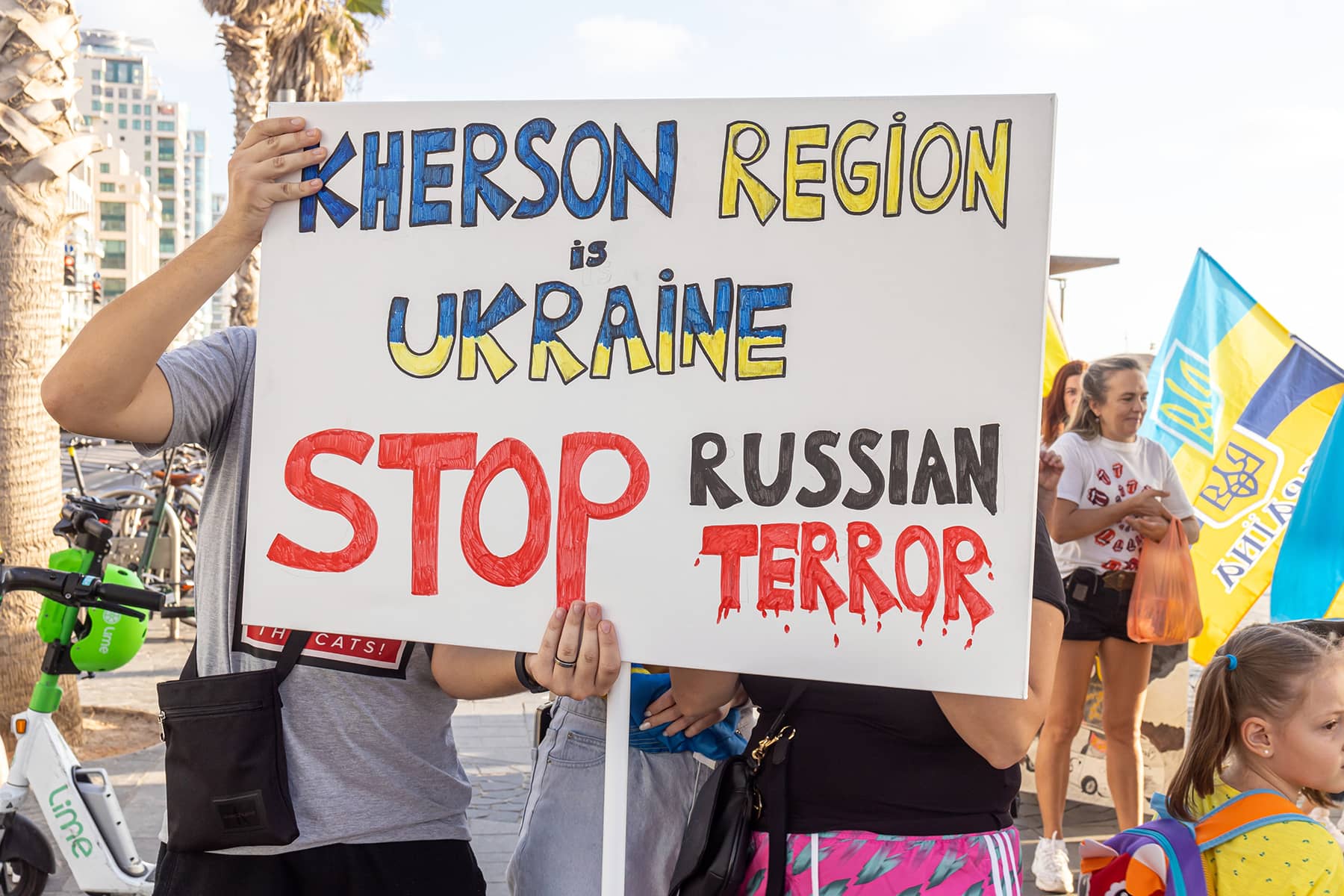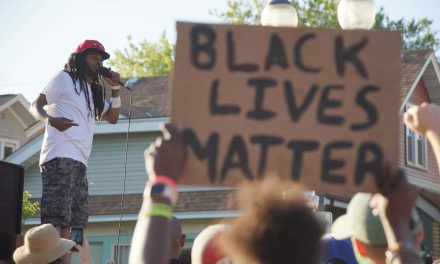
The Ukrainians have (again) done what nobody believed they could. They have (again) defeated the supposedly mighty Russia on the battlefield, shown up the underlying incompetence and moral rot of the Putin system.
It took them just six days to take back whole swaths of territory in north-eastern Ukraine that it took Russia six months to conquer. The Russian military, political and propaganda elites are all blaming each other: rifts that usually rumble under the surface are now visible to all. Putin looks shaken.
Now it is time for us to act as well. Not just by increasing help to Ukraine on the battlefield – which is paramount, but also by advancing along the other fronts in this conflict: energy, information, finance and diplomacy.
Whether we like it or not, Putin is attacking us. This isn’t just Ukraine’s war. We can feel Putin’s weapons waged against us every day. Putin is using energy blackmail to raise the cost of living, trying to bankrupt our businesses and hurt the most vulnerable parts of society. He has used the threat of blocking Ukrainian grain exports as a way to threaten starvation of the world’s poor.
His use of cyber-attacks, assassinations, corruption and disinformation campaigns is well documented. Last week, new intelligence dumps from the US revealed he has spent $300m financing political movements in the west, largely on the far right. Every village the Ukrainian army liberates in east Ukraine is also a victory against the forces of neo-fascism in the thing once known as the west.
He is doing this because he wants a new world where he and others like him can act with impunity. Welcome to conflict in an age of globalization gone wrong, where intense integration hasn’t meant everyone coming together in a global village of perpetual peace, but a new world where interdependence has meant new opportunities for the likes of Putin to undermine others.
But his opportunities are also his vulnerabilities.
First, he is over-reliant on energy and has gambled that Europe especially will always be forced to kiss his shiny boots as they beg for gas. He has been encouraged by a panoply of western, largely German, political and business elites that carried on entrenching energy dependence even after Russia invaded Ukraine in 2014 and hounded sexual minorities, critics and activists at home. There was always a sense that Russia was inevitable, an immovable force one had to succumb to.
Instead, we should see it for what it is – an abusive neighbor one has to cut all dependence from. People need to be reassured their governments can take care of them and that the sacrifices all make have a reward – true freedom and sovereignty. We are not making sacrifices “for Ukraine” – we are breaking from our Russian energy addiction because we need true energy security.
But the economic interests that always advocated doing business with Russia will start to raise their voices as the economic costs mount. There is already a whole class of businesses that sees the sanctions and boycotts against Russia as a game: one sells goods to Turkey and other intermediary countries, for example, which then sell them on to Russia.
There is little danger or repetitional costs involved. This needs to change. The corrupt or just shady and plain sleazy business and political elites that entrench business with Russia need to be held responsible. This goes all the way from the dodgy lawyers who shuffle money around opaque shell companies, through to the business lobbies and the leadership of political parties who worked to entrench dependence on Russia.
We need an uncompromising civic movement that exposes their responsibility. For inspiration, think how Greenpeace worked with academics and journalists to uncover how the fossil fuel industry manipulated politics and public discourse and then launched fearless campaigns to make the fossil fuel companies’ corporate lives so hellish they had to change their ways. This can include both legal pressure, but also reputational costs.
We need something similar for the enablers of Putin (and other dictatorial regimes). The money launderers, sanctions busters and morally bankrupt businesses and politicians need to know there will be a steep cost for their activity, both in courts and the court of public opinion. Currently, impunity reigns.
The sanctions themselves can be tightened. Financial experts speak of the need for more secondary sanctions against businesses that work with Russia; Gazprom Bank remains free of sanctions – in order to facilitate energy transactions. The Kyiv School of Economics says 1,144 foreign companies still function inside Russia.
But apart from shutting such loopholes, what is systemically missing from the sanctions package is the communications piece. This is bizarre: imagine launching economic reforms without backing them with a communications effort. We’ve given Putin free rein to shape perceptions around sanctions himself. And this is a battle of perception.
The Ukrainians are not this negligent. They know that their military actions have to be accompanied by information and cyber campaigns. They try many innovative ones – from hacking into Russian TV to broadcasting Zelenskyy speeches to social media campaigns on popular Russian pirate video sites that hammer home the truth about Russian war crimes and the grim future for Russian soldiers in Ukraine.
As the sanctions bite, Putin will continue to try to coddle his middle classes in the big cities, try to keep them sheltered from the consequences of the war, which is just meant to be a tub-thumping show on TV. Many parts of society still believe that the war will blow over, that things will go back to “normal,” that the west will cave, that there is no alternative to Putin who can still guarantee security and stability.
Though Kremlin propaganda celebrates slogans that trumpet isolationism, “what’s the point of the world if there’s no place for Russia in it” is a frequently repeated one, the Kremlin knows that Russians do not really want to be isolated: thus the non-stop messages on TV about how western actors from Tucker Carlson to Viktor Orbán support Russia and the new laws that make pirating western entertainment content legal. As long as the middle classes can still go to Europe on holidays, they can still feel that Putin is getting away with it.
We need communication campaigns that, at the very least, show that sanctions are long term and there is no “back to normal.” Russia has broken the set of values that guarantee European peace and has to pay the consequences. We do not need to be loved by Russians; this is not about winning people over, it is about showing there are limits and these limits are non-negotiable.
In a famous essay about how to deal with children’s tantrums, the psychoanalyst Adam Phillips writes how adults need to embrace that they will be hated by children when they set limits to this behavior; they have to learn to be the point of frustration.
Putin wants to destroy the underlying values that guarantee a Europe of rights and peace. We have to show that this was an immensely foolish idea and to get Russians to ask the question: was it worth it? Does their leadership know what it is doing?
The example of South Africa shows people in even the most morally bankrupt societies eventually get fed up with regimes that lead them into isolationism. Insider Kremlin polling – which is widely leaked in academic circles – shows the same; when Russians feel they are being shunned by the world thanks to a difference in values, identification with the state goes down. As the sanctions bite, there will be many more information campaigns to run.
The Kremlin will try to cover up how privileged insiders get a much easier life than ordinary people; will try to sweep under the carpet how some regions will sponsor others even more than they do now; will avoid talking about how Russia is becoming even more dependent on China – an unpopular policy in Russia. All these issues need to be brought to light for the sanctions policy to have proper impact.
Whose job, however, is this? I have been using the term “we” throughout this piece, but who is this “we?” In the Second World War and cold war there were institutions that could wage what used to be known as “political warfare.”
In an age of dark interdependence, we will need institutions that can do this once again. But there is one huge change from those grim conflicts. These days, some of the best campaigns come from the civic space.
If in the Cold War the U.S. Information Agency organized public information campaigns into the Soviet Union, today it can be Lithuanian volunteers who call Russian families and try to inform them about what is really happening in the war in Ukraine.
Governments are an inevitable player, but it is civic actors who can initiate the targeted anti-corruption campaigns and information campaigns I have mentioned and then by proving success drag sluggish governments along. Ukrainians fight the Russian invasion as one family – all parts of society pulling together in one aim. We should too.
Pеtеr Pоmеrantsеv
Еlеnа Rоstunоvа
Originally published on The Guardian as Despite his defeats, Putin still shapes our perceptions. Let’s fight him at his own game
Help deliver the independent journalism that the world needs, make a contribution of support to The Guardian.














